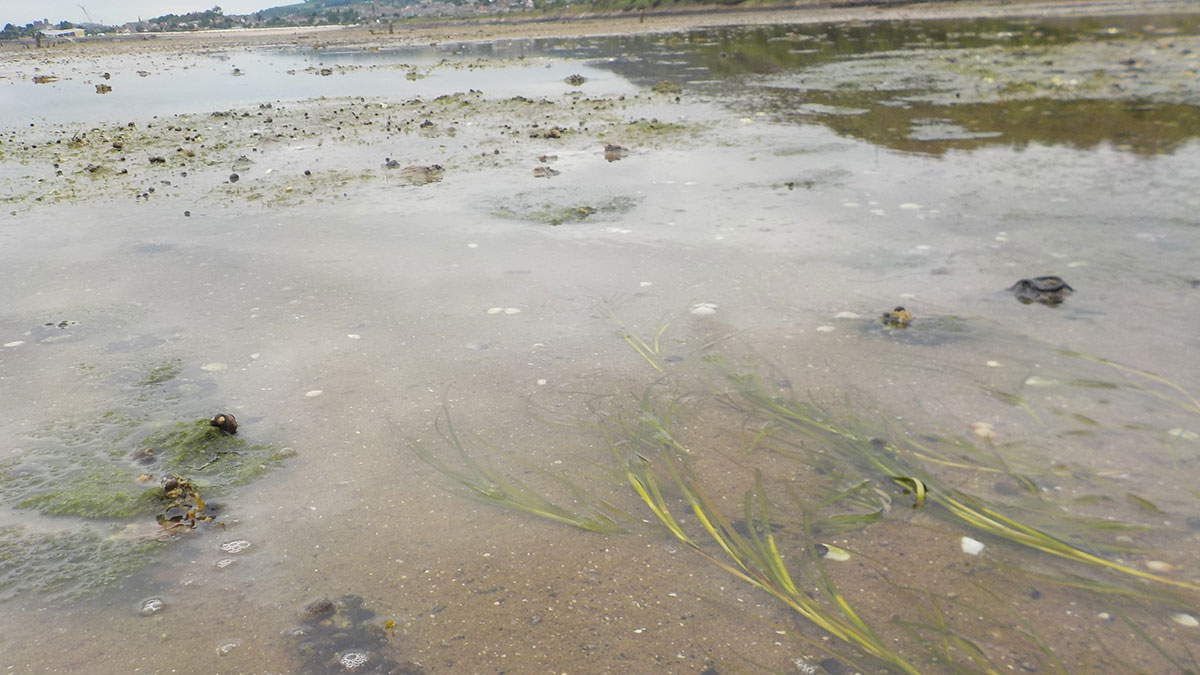Published:

Marine biologists from Heriot-Watt are heading to Kinghorn this week to map seagrass meadows off the beach.
Dr Alastair Lyndon and Matthew Abutunghe, an MSc student, will don their wellies and head to the beach at low tide to survey the seagrass meadows.
They're part of Restoration Forth, a £2.4million major marine restoration programme working with communities to restore seagrass habitats and native oyster populations in the Firth of Forth.
The project is working in communities right along the Forth, but Lyndon says Kinghorn's seagrass is of particular interest.
Lyndon said: “Kinghorn is a major site in the Forth for the larger seagrass, known as Zostera marina. It's not a neat seagrass meadow, it's very patchy and interspersed with some dwarf seagrass.
“The seagrass bed here has got smaller over the years, but it hasn't disappeared completely - so it likes the area and the conditions, but we need to find out how to improve things.
“We're mapping the seagrass here so we can understand how it changes over time, and which restoration methods are most effective.
The team hopes the Kinghorn meadow might serve as one of several sources of seagrass seeds to supply the newly-established incubator unit at the Ecology Centre by Kinghorn Loch.
Lyndon has surveyed seagrass in the Forth area over the past 10 years and hopes the Restoration Forth project will raise awareness about the plant's importance, as well as restore meadows up and down the river.
“Seagrass is the only marine plant with roots. These play a huge role in stabilising the seabed and protecting communities from coastal erosion and they act as a carbon store. Seagrass is also a biodiversity hotspot and provides a home to a whole host of marine species, like oysters, molluscs and shrimp.
Restoration Forth will run over three years and restore around four hectares of seagrass meadows. It will also introduce 30,000 oysters to the Forth.
The project is run by WWF Scotland and Heriot-Watt is a partner organisation alongside the Fife Ecology Centre, Fife Coast and Countryside Trust, the Marine Conservation Society, the Edinburgh Shoreline Project and many others.